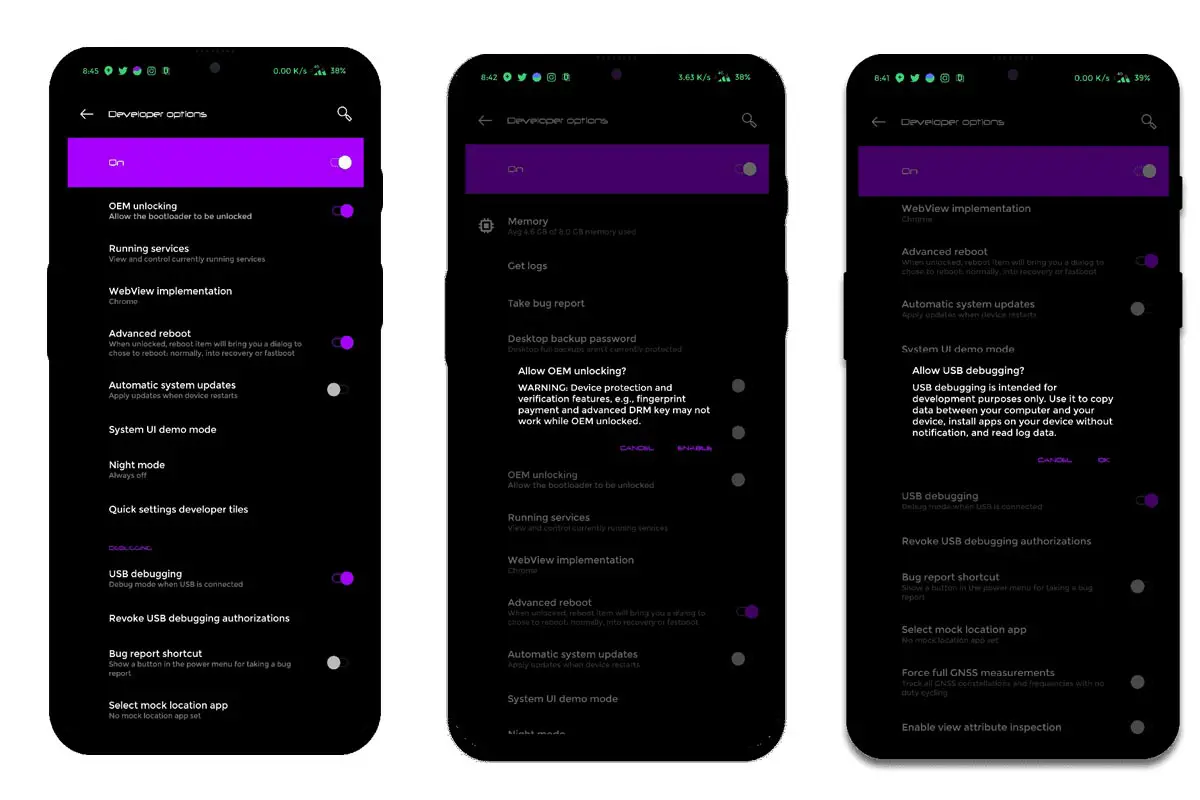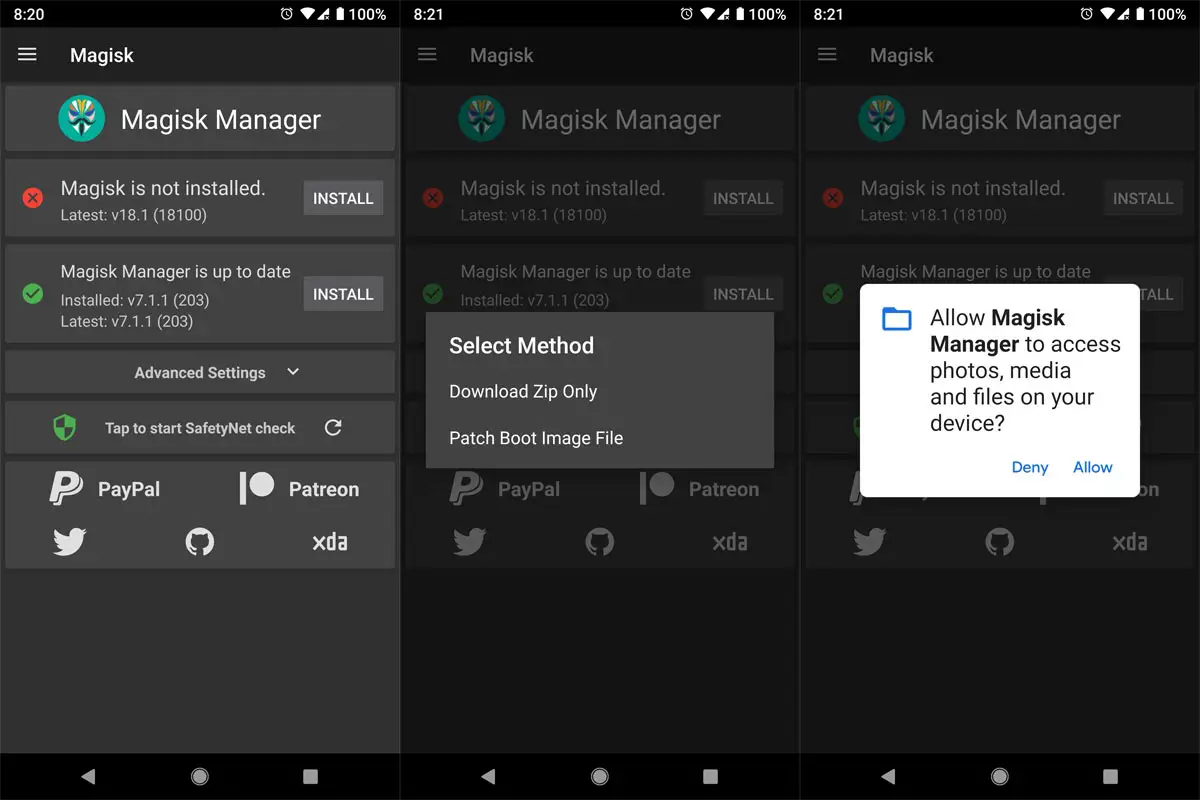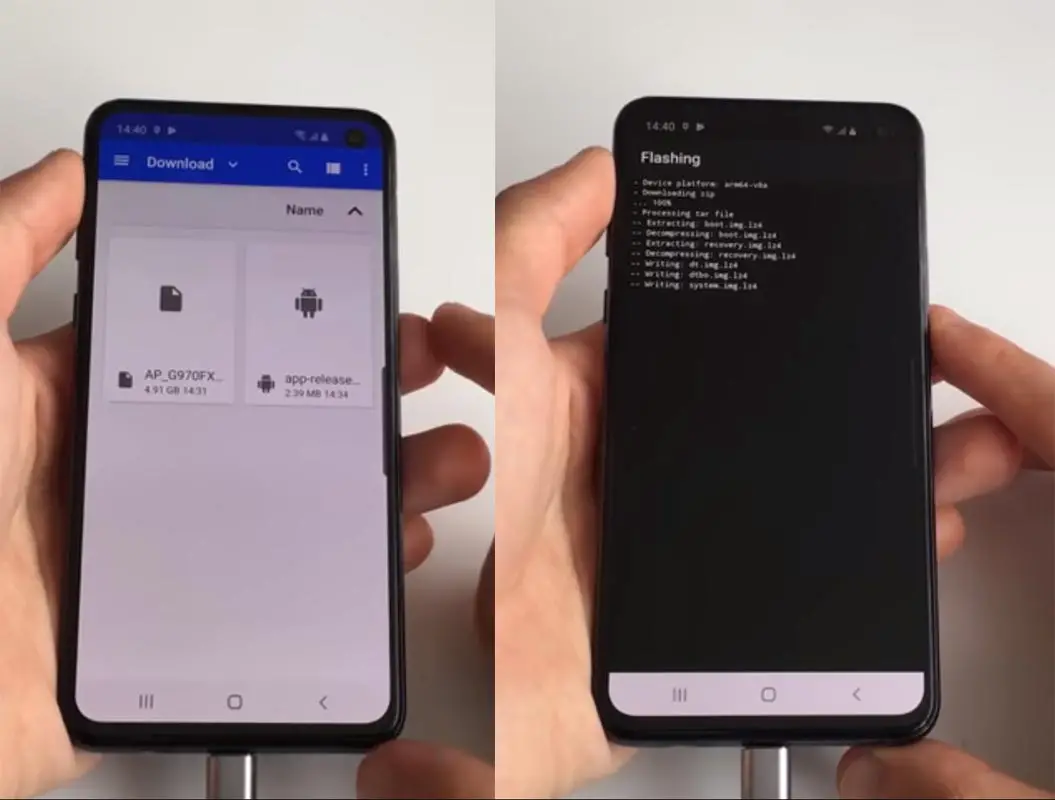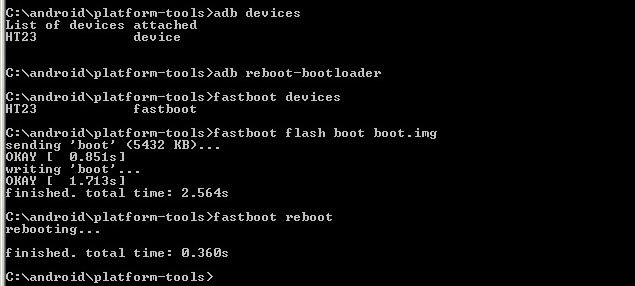Even if Google always tries its best, it can’t match user rhythm in the Pixel phone’s hardware. In Software-wise, Google always put the best version and features of Stock Android. Google Pixel 3 and XL received some criticism because of the notch. To provide a wide-angle selfie, they have to put the two cameras in the front. Later they added an option to hide the notch. But it will cut out the screen space. Other than the notch, Google Pixel 3 is still a better phone. Google Pixel 3 and XL came with Pie 9.0 and got Android 11. There is no need to root your mobile. But, When you are a regular root apps user or Developer, you can root your Google Pixel 3/XL Android 11 using the below method. In the following method, we use only Magisk. So, You can’t install custom ROMs.
![]()
After the Root, you will not get official updates from Google. You have to flash the Stock firmware again to get the updates and stay with the latest version. So, I advise until you have a proper reason, don’t root your mobile. If you are a Developer or Regular root apps user, you can follow the below guide to achieve root on your mobile.
Why should you Root Google Pixel 3/XL?
We thank XDA Developers- topjohnwu and boy76 (Who successfully tested this method). Without their hard work, We can’t make this method. Coming to root, you should have a proper reason, and you know what you are doing. Yes, with a minimum of 4 GB RAM and Qualcomm SDM845 Snapdragon 845 processor, You can use this mobile without root for 2-3 Years If you use it in regular usage. Software is better compared with other manufacturers, Custom skin OS. Don’t root because everybody is saying when root your mobile, it can become fast. No. Rooting is to extract some performance from the device. But, you already have Optimized Powerful specs and software. So, If you are addicted to some root apps, you can root. But, if you want to test, I won’t recommend it.
How to Root Google Pixel 3/XL Android 11 (Crosshatch, Blueline, International versions)
Google Pixel 3/XL International Variants comes with a flexible bootloader other than some carrier locked devices. This means that different smartphone variants can be easily rooted. The device can also accept installing TWRP recovery or any other custom recovery file/app.
But In the below method, we are going to Root this device by using Magisk. You can install Official TWRP using the official App when it is released. TWRP recovery is a custom recovery file that must be installed on your devices because you can root them successfully. This article explained the easiest method to follow and install Magisk on Google Pixel 3/XL. However, the tool required for rooting this device is the Magisk App.
You can flash TWRP once it is available. With the help of TWRP Recovery, you can quickly flash the Custom ROMs into your Google Pixel 3/XL. Before sharing the tutorial, you may want to know that you can easily install any root apps with the Magisk present on your device. Does it seem complicated? Relax; everything will be explained succinctly in bullets.
Things to check out for;
-
Make sure your device battery is charged above 50%
-
Backup your current files and data, full data loss process (save them on external storage).
Pre-Requirement Steps
-
Enable USB Debugging Mode and OEM Unlock on your mobile. To do this, go to settings >>> about >>> Tap on the “Build Number” 7-10 times consistently to enable “Developer Options,” then go to the “Developer Options” and enable USB Debugging Mode, OEM Unlock. There is no complicated process in Google Pixel 3/XL.
-
Download the ADB drivers. Install it on your PC.
- Also, download the regular Partition Fastboot drivers Install It on your PC. Use these drivers to flash the Boot image file.
Unlock Bootloader Google Pixel 3/XL using ADB and Fastboot
![]()
- Switch off your device. Then, enter into Fastboot mode. To do this- Press and hold down the Volume Down + Power buttons at the same time for some time and connect your mobile with your PC.
![]()
-
Press the Volume Up button to continue when you see the warning message.
-
Now, connect the Google Pixel 3 XL mobile to the computer via USB cable.
-
Launch the fastboot on your computer. Open a Command prompt on your PC and type the below command.
- fastboot devices
- It should display the connected devices. If you didn’t get the device, restart the command prompt and Disconnect and Connect your Google Pixel 3 XL. If you are detected, type the below command and hit Enter.
- fastboot flashing unlock
![]()
- Confirm unlock Bootloader in your Mobile Screen.
-
After the successful unlock, your device will automatically reboot to the standard OS.
- Check again to enable “Developer Options,” then go to the “Developer Options” and enable USB Debugging Mode, OEM Unlock. Sometimes they disabled themselves after the boot.
Preparing Patched Boot Image file for Google Pixel 3/XL
- Download Google Pixel 3/XL Firmware and save it on your PC (Factory Image file, not OTA). Your Current OS version and Downloaded Version should be the Same.
- You can use Phone Info to know your firmware version.
- Download 7Zip-ZS Install on your PC. Extract the files in downloaded firmware using 7Zip-ZS. You will get a lot of data. You should extract another .zip file inside the already extracted firmware to get the boot file. Copy boot.img file to your mobile.
![]()
- Download Magisk Manager (Download Latest version) or Magisk canary and Install it on your mobile. Open Installed Magisk and Select Install in Magisk; it will ask For zip file and Patch Boot Image File. Select the Boot Image file.

-
Navigate to your copied Boot Image File and patch the file as .img format.

- Wait for the process to complete; in the end, you will get a magisk patched .img file. The .img file will be in the same folder where you have the boot. img.
- Copy magisk_patched.img file to your PC. Rename the file to boot.img again.
Flash Patched Recovery Image using ADB and Fastboot
- Switch off your device. Then, enter into Fastboot mode. To do this- Press and hold down the Volume Down + Power buttons at the same time for some time.
-
Press the Volume Up button to continue when you see the warning message.
-
Now, connect the Google Pixel 3/XL mobile to the computer via USB cable.
-
Launch the fastboot on your computer. Open a Command prompt on your PC and type the below command.
- fastboot devices
- It should display the connected devices. If you didn’t get the mobile, restart the command prompt and Disconnect and Connect your Google Pixel 3/XL. If you are detected, type the below command and hit Enter.

- fastboot flash boot –slot all boot.img
- After the process complete, Press the Volume Down+ Power button to exit Fastboot mode. When the screen goes off, Immediately Press Volume Up + Power buttons to boot into Recovery mode.
- After entering into Stock recovery mode, Go to Wipe Data/Factory Reset and Select Yes to wipe data. It will erase your saved data on your device. Don’t Boot into OS; read below Boot stages before booting.
Boot into Rooted OS
- Press and Hold Volume Up + Power buttons, release all the keys once the Bootloader warning appears. You have to set up your device like a new device. You can select the root status using the Root Checker.
- Stock Recovery Boot – Press and Hold Volume Up + Power buttons, release keys while you hold the Volume Up key.
- You will see Magisk Manager in your App drawer. If you can’t find the app, you can install Magisk Manager on your mobile.
![]()
What More?
In my opinion, you don’t need rooting for your Google Pixel 3/XL Android 11. If you thought you could Improve Performance By root; With the Qualcomm SDM845 Snapdragon 845 Octa-Core processor and 4 GB RAM, your device can perform well. If you don’t know how much RAM you need, You will never use this much RAM. It would help if you did not Boot into Normal OS Booting by pressing the power button after firmware flash. It will boot you to a Non-Rooted environment. If you accidentally urged and boot frequently, Don’t panic; after setup everything, switch off your device and boot into Rooted OS using above mentioned keys. Don’t Install any apps other than trusted sites on rooted devices. Third-party site apps can contain some background codes. So, Check twice before installing those apps.

Selva Ganesh is the Chief Editor of this Blog. He is a Computer Science Engineer, An experienced Android Developer, Professional Blogger with 8+ years in the field. He completed courses about Google News Initiative. He runs Android Infotech which offers Problem Solving Articles around the globe.



Leave a Reply